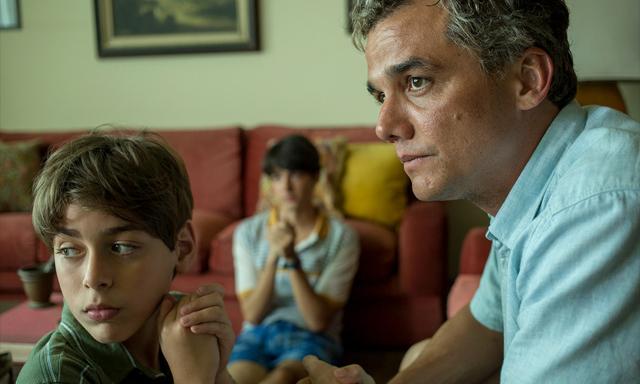In this latest Netflix original film, the life and work of United Nations diplomat Sérgio Vieira de Mello, played by Wagner Moura, is dramatised. Born in Rio de Janeiro, Brazil, Sérgio was a major humanitarian advocate and the feature particularly focusses on his work in the chaotic aftermath of the US invasion of Iraq. In 2003, the UN headquarters in Baghdad, Iraq, was attacked, putting the diplomat's life into grave danger.
The beginning of 'Sergio' seems promising as we follow the titular figure's work in Iraq after President Bush proclaims a war on terror. He's taking initative where he shouldn't, much to the irritation of American diplomat Paul Bremer (Bradley Whitford). But he knows that if peace is to be established, the citizens must be listened to. Thus, through Sérgio, the UN separate themselves from the US.
Despite having an interesting start, which indicates a "he versus them" political game, 'Sergio' suffers from an issue in common with politics: too much talking. The frame of the movie is the Canal Hotel bombing in Iraq which holds his life in the balance. But the increasing jumps between the past, present, further back into the past, and not so far back in the past, lack cohesion and fail to establish the rapport with audiences that was intended.
The three lead performances in Wagner Moura, Ana de Armas ('Blade Runner 2049', 'Knives Out') and Irish actor Brían F. O'Byrne (who 'Love/Hate' fans should recognise) are all great. There are also some emotional, compelling scenes, for example, when Sérgio speaks to a woman working in Timor. Unfortunately the film continually drags. Around an hour in (with about an hour to go), the momentum has halted. It's so dull at this point that most spectators will likely check out.
What keeps it going is the civil union between Sérgio and de Armas' character Carolina Larriera. This commences as a narrative tangent, but is soon relied on for a narrative crutch. She offers advice while he reveals the downsides of his campaign to her but it's hard to take their conversations seriously. It encapsulates that old school problem with contemporary politics in that the stereotype is young people don't care unless there's something else involved. Thus the movie focusses on that rather than what could've been an interesting political affair. In the end there's no real story to invest in.
You wonder if the filmmaker chose the wrong aspects of Sérgio's life to focus on. Previously, director Greg Barker was behind a 2009 documentary on Vieira de Mello. Perhaps he thought that to sell it to Hollywood, you've got to focus on the romance. In any case, the film seems to find its feet again every time the camera returns to our lead and his colleague trapped underground, recalling Nic Cage and Michael Peña starrer 'World Trade Centre'. But this eventually comes off as cheap and try-hard as there's nothing else of interest going for movie. At one point there's a celebration for Sérgio's work in Timor. It skips over what led up to this moment - that's what this reviewer came to see, not some couple making out in the hallway with fireworks in the background.





















































































